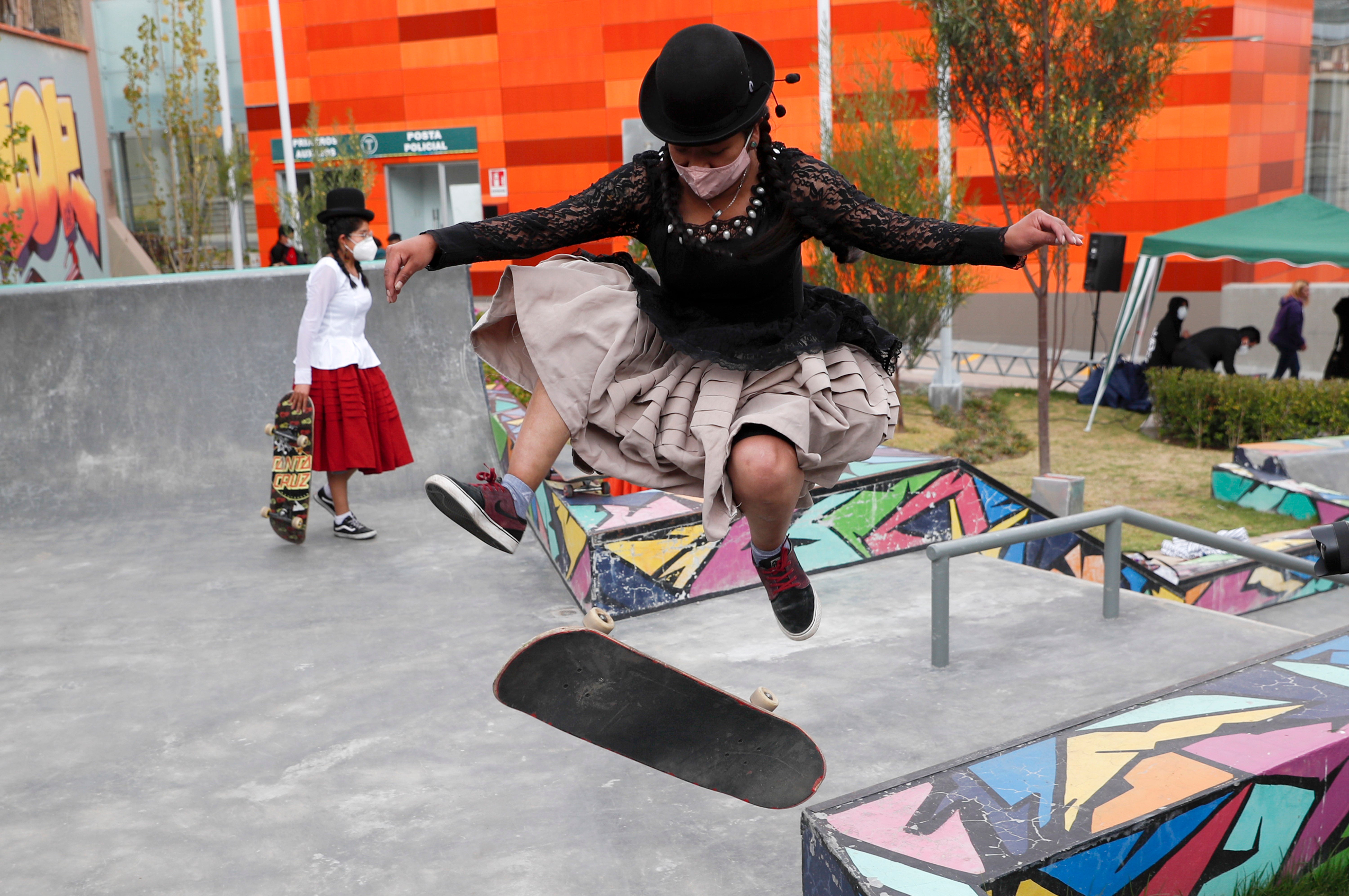Bolivian women skateboard in Aymara garb to showcase culture
The traditional bowler hats, blouses and long, plaited “pollera” skirts of the young women contrast with the skateboards under their feet as they swoop back and forth on the ramp in Bolivia’s largest city

Your support helps us to tell the story
From reproductive rights to climate change to Big Tech, The Independent is on the ground when the story is developing. Whether it's investigating the financials of Elon Musk's pro-Trump PAC or producing our latest documentary, 'The A Word', which shines a light on the American women fighting for reproductive rights, we know how important it is to parse out the facts from the messaging.
At such a critical moment in US history, we need reporters on the ground. Your donation allows us to keep sending journalists to speak to both sides of the story.
The Independent is trusted by Americans across the entire political spectrum. And unlike many other quality news outlets, we choose not to lock Americans out of our reporting and analysis with paywalls. We believe quality journalism should be available to everyone, paid for by those who can afford it.
Your support makes all the difference.The traditional bowler hats, bright blouses and long, plaited “pollera” skirts of the young women contrast with the skateboards under their feet as they swoop back and forth on the skate ramp in Bolivia's largest city.
The girls of the collective “ImillaSkate," a mixture of Aymara and English meaning girl and skateboarding, wear the Indigenous dress of their grandmothers to showcase their culture and promote the sport among women
“I love this sport, I love my culture and I love being a woman, and that is what motivates me to continue,” said Ayde Choque, while tying the laces of her black Vans shoes and donning the face mask required amid the new coronavirus pandemic.
The group of five young people in La Paz joined a movement that was born in the central Bolivian region of Cochabamba last July. There, more than a dozen young women drew attention with a video posted on Facebook showing them skating through the streets of Cochabamba dressed in Indigenous garb.
Before, the skateboarding women in La Paz wore tight jeans, loose t-shirts and caps when they skated. Aymara women traditionally wear ankle-length layered skirts, embroidered blouses and shawls with a bowler hat perched atop their long black braids.
“My grandmother wore her ‘chola’ dress with pride, and I want to revalue her culture,” said Milenda Limachi.
Limachi said at first she fell a lot, but a friend encouraged her to continue and she got better.
“Here it is mostly men who practice" skateboarding, she said. "But the world will know that in Bolivia there are women who do it.”
Huara Medina, organizer of the group in Cochabamba, called it “a joy that the group is growing.”
"We are also in La Paz and little by little we will be reaching other parts of the country,” she said.
Usually, the La Paz group practices jumps and stunts on a track opened last year. They say that bit by bit skateboarding is growing in popularity in the Andean nation.